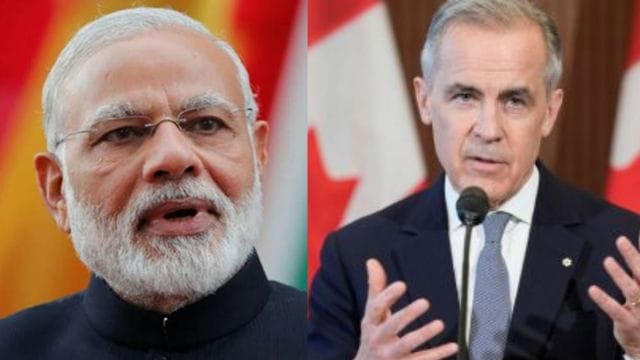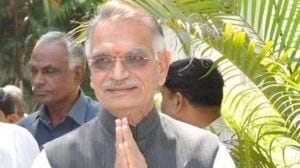Following a phone call from Carney, Modi, in a post on X, said, “Glad to receive a call from Prime Minister Mark J Carney of Canada. Congratulated him on his recent election victory and thanked him for the invitation to the G7 Summit in Kananaskis later this month.”

“As vibrant democracies bound by deep people-to-people ties, India and Canada will work together with renewed vigour, guided by mutual respect and shared interests. Look forward to our meeting at the Summit,” he said.
Carney said, “I spoke with @NarendraModi today on the longstanding relationship between Canada and India, including deep people-to-people ties and significant commercial links. Importantly, we agreed to continued law enforcement dialogue and discussions addressing security concerns.”
The invitation, less than 10 days before the Summit, is a major breakthrough after the chill in ties. The two countries downgraded diplomatic ties after Justin Trudeau, the then Canadian Prime Minister, set off a political storm in 2023 when he alleged “potential” involvement of Indian government agents in the killing of a Canada-based Khalistan separatist, Hardeep Singh Nijjar. India rejected the charges as “absurd” and “motivated”.
India has been invited to every G7 Summit since 2019.
Barring 2020 when the G7 huddle was cancelled by the US, the host country, Modi has attended every Summit since August 2019.
Usually, G7 host countries invite some countries as guest countries or outreach partners. Canada had so far invited Ukraine and Australia.
France was the host of the G7 Summit in Biarritz in August 2019 — after Modi became Prime Minister in 2014, this was the first invitation. Before that, Prime Minister Manmohan Singh had attended the G8 summit five times between 2004 and 2014 — the grouping became the G7 in 2014 after Russia’s suspension, and subsequent exit, over its annexation of Crimea.
In 2020, US President Donald Trump called the G7 a “very outdated group” and said he would like to include India, Australia, South Korea and Russia in the grouping of the largest advanced economies. Trump had suggested that the Group of 7 be called “G10 or G11”, and proposed that the grouping meet in September or November 2020. But due to the pandemic and the US elections, that did not happen.
Story continues below this ad
Modi attended the 2021 Summit via virtual mode, and then attended the summits in Germany in 2022, Japan in 2023 and Italy in 2024.
This May 25, Canada’s new Foreign Minister Anita Anand had a phone conversation with External Affairs Minister S Jaishankar. It was the first official political-level contact between Delhi and Ottawa after Carney won the Canadian elections and became Prime Minister, raising hopes for a reset in ties.
Anand said Canada looked forward to rebuilding ties with India as part of an effort to diversify trade away from the US — even as the RCMP investigation into the killing of Canadian Hardeep Singh Nijjar continued.
Following Trudeau’s exit and the defeat of Jagmeet Singh, who leads the left-leaning New Democratic Party and is viewed by Delhi as a backer of pro-Khalistan separatists in Canada, India has been looking at Carney to handle ties with “much more maturity”.
Story continues below this ad
The G7 invite is the first step in that direction, and officials said there is hope that bilateral ties will once again be based on “mutual trust and sensitivity”.









